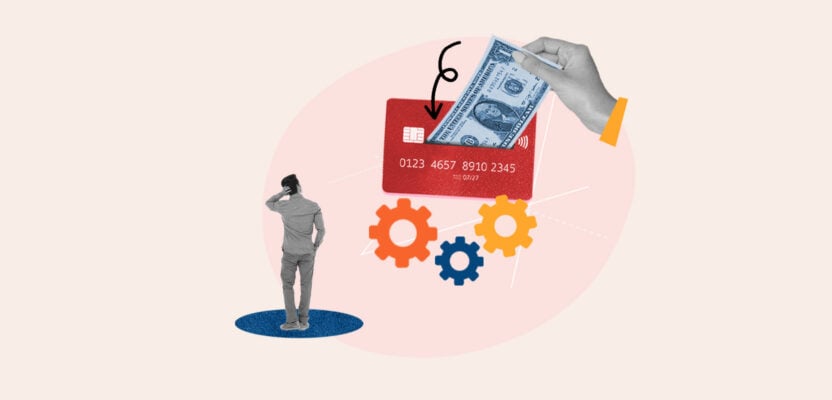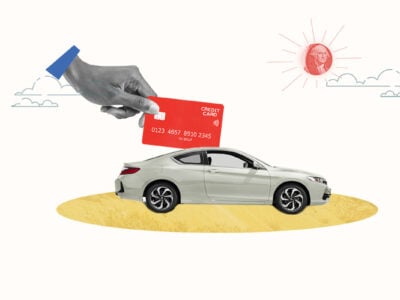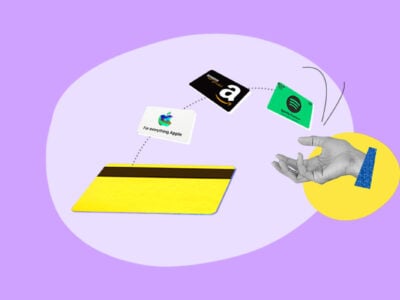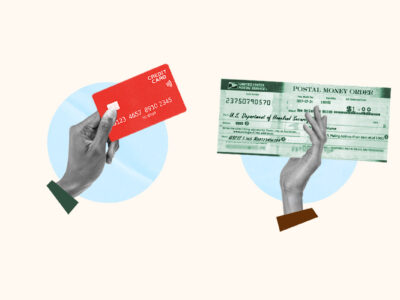It’s hard to get all your purchases right the first time, particularly in the era of online shopping. Sometimes items arrive with defects or simply aren’t what you thought you were buying.
When this happens, it’s normal to ask for a refund. This is a relatively simple process, even if you paid with a credit card. Read on to learn how credit card refunds work and how to get one.
Table of Contents
What is a credit card refund?
A credit card refund is exactly what it sounds like—money that you get back when you buy something with your credit card and later return the purchase.
Regardless of whether you used your credit card to pay in person or online, you won’t receive your refund in the form of cash. Instead, you’ll receive statement credit, which is money that’s deposited directly into your credit card account. This will lower your balance on the card, aka reduce your outstanding debt.
If your balance drops below $0 (because you already paid off most or all of it before receiving your refund), you’ll have a negative balance, which essentially means your credit card company will owe you money.
They’ll usually just apply this to your future purchases on the card, although you might also be able to request a check for the amount that they owe.
How do credit card refunds work?
When you request a refund, the retailer technically won’t reimburse you; they’ll reimburse your credit card issuer. After your issuer processes the refund, they’ll deposit the statement credit into your account.
This is the same way that all credit card transactions work. When you buy something with a credit card, it’s technically also your credit card issuer—not you—who pays the merchant or retailer you’re buying from. You then pay your issuer back further down the line.
This is why, when you request a refund, the retailer can’t just immediately pay you back in cash. All transactions have to go through your credit card issuer. Because credit card payments are indirect, credit card refunds are, too.
Credit card refunds only apply to the actual purchase
When you get a refund on a credit card, you’ll receive credit equal to the purchase price of the item or service. You won’t be reimbursed for the following:
- Interest: If your purchase has already accumulated interest according to your credit card’s APR, those charges will remain on your balance after you get your refund.
- Foreign transaction fees: If you get a refund on something you purchased outside the US—while you were on vacation or on a foreign website, for example—your refund probably won’t include any foreign transaction fees you paid. You’ll just have to write that money off as a loss.
To protect yourself, pay off your purchases before they accrue interest, even if you’re planning on asking for a refund, and be careful when you buy from merchants located outside the US.
How can I get a credit card refund?
To get a credit card refund, contact the business where you bought the product or service. Explain why you’re not happy with your purchase (e.g., the item wasn’t what you ordered or didn’t work properly), and ask for your money back.
Note that some companies will want you to make this request in a specific way (for instance, in writing or by filling out a particular form), so do your research beforehand to see if they have any policies you need to follow.
If you bought a physical item, be prepared to return it. Some retailers will tell you to keep it, but others will need it back before they’ll agree to the refund.
Also, make sure you have your credit card on hand, especially if you made your purchase in-store (instead of online). It’s possible the retailer will still have your information on file, but they might still ask to see the card to verify your identity.
What to do if the retailer won’t agree to refund you
If you’re having problems getting a refund from a merchant, you can ask your credit card issuer for help.
Credit card companies can’t issue refunds on behalf of merchants, but they do allow customers to submit chargebacks. This essentially means disputing the transaction.
If you submit a chargeback, your credit card company will notify the merchant that you’ve filed a dispute and give them a chance to respond. What happens next depends on their response:
- If they accept the dispute: You’ll get a refund, and the dispute will be over.
- If they reject the dispute: If they insist that the charge is valid, you can either agree to pay it or escalate the issue to arbitration.
Chargebacks are meant to protect you from transactions with serious problems (e.g., the product wasn’t as described or never arrived at all, etc). If you simply have buyer’s remorse and the retailer has a no-refunds policy, submitting a chargeback is less likely to be successful.
To request a chargeback, call the customer service number on the back of your credit card or search your card issuer’s website. They’ll probably have a “dispute transactions” page where you’ll be able to submit your request.
How long do credit card refunds take?
Credit card refunds usually take 3–7 business days. However, the exact time varies from issuer to issuer and depends on your circumstances.
In some cases, refunds can take weeks. For example, if you’re returning something you bought online, you’ll have to mail it back to the merchant first. It could then take them a week or more to receive the package, process it, and then finally initiate the refund.
If you want a faster refund for an online purchase, you can speed things up by getting expedited shipping. However, this will cost you.
What to do while you wait
If you’re waiting for a credit card refund to land in your account, don’t stop paying your bills in the meantime. You still need to make your minimum monthly payment by the usual due date. Otherwise, you’ll get hit with late fees on your credit card.
As mentioned above, you also won’t be refunded for any interest your purchase generates. If you can, pay off the entire purchase before the end of your credit card’s billing cycle so that it doesn’t accumulate interest.
Will getting a refund on a credit card affect my credit score?
Getting a credit card refund won’t directly affect your credit, either positively or negatively. In fact, it won’t be recorded on your credit report at all.
That said, getting a refund can indirectly boost your credit score by lowering your credit utilization rate, which measures how much of your available credit you’re using. Using less credit is good for your score, so once you get your refund, your score might go up, especially if you got reimbursed for a large purchase.
What happens to my rewards when I get a credit card refund?
Unfortunately, when you return a credit card purchase and get a refund, you’ll forfeit any rewards (e.g., points or cash back) that you earned.
The reasons for this are fairly obvious; if credit card companies let people keep the rewards on refunded purchases, it would be possible to exploit this to rack up points or cash back without actually spending money.
If you want to avoid losing your rewards, you can ask the merchant for store credit instead of statement credit. This takes the credit card company out of the equation, which means your rewards will be safe.
`





